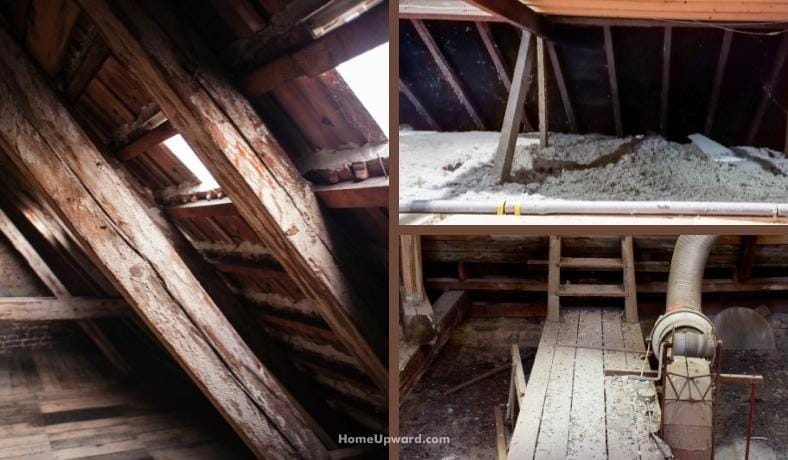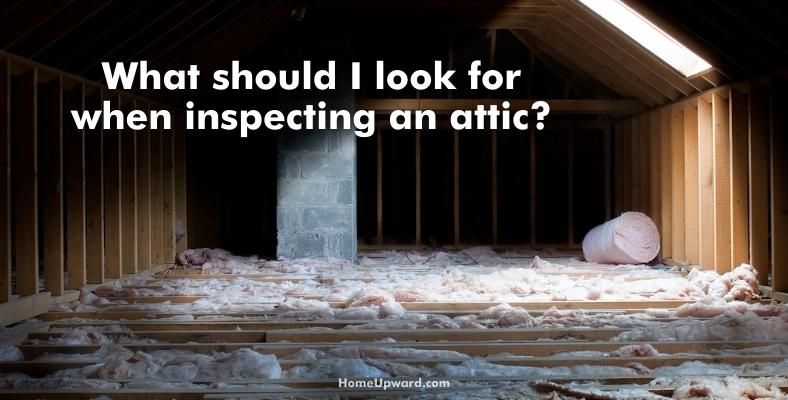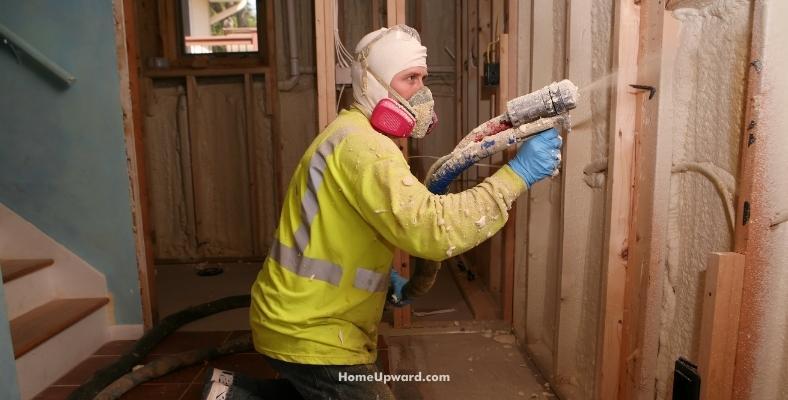Contents
Why Does My Attic Smell Bad?
The all-too-common problem of a smelly attic odors is generally because of three reasons:
- Dead rats or another dead animal.
- Mold.
- Rodent droppings or urine.
If it smells like rotting meat, rotten eggs, or urine, there’s probably a dead animal in the attic that has decomposed. If your attic has a musty smell it might be due to mold growth or improper ventilation that allows moisture to build up.
Rodent droppings are tiny but combined with their urine you can definitely get a bad stink you won’t soon forget.
Is it Normal for Attics to Smell?
All attics have a funny smell, especially the old house smell because they’re hardly ever used and have no proper attic insulation like the result of the house. Also the old building materials used or items in storage age over time and it’s partially due to that as well.
While an “old house” or “old attic” odor isn’t unusual, your attic shouldn’t stink with a foul odor you hate.
What Does Attic Mold Smell Like?
Mold has a very distinct smell. It’s kind of a musty, stale, pungent like rotting wood, and often even muted and dull. It’s actually one of the most common attic odors in fact.
How Do You Get Rid of Attic Smells?
The good news is that getting rid of attic smells isn’t very hard – you just need to get a plan together and take care of a few steps.
Identify the Source of the Smell
You’ll need to find out what is causing the smell by inspecting your attic. The foul odor could be due to poor insulation, bad indoor air quality, mold growth, no exhaust vent, or dead animals.
Mold does tend to be relatively easy to spot but not always, especially if the water or moisture is in an out-of-the-way area that you can’t see easily. Similar for a dead animal or rodent waste.
Get To Work
If a dead animal is the source of the pungent smell, place it in a garbage bag and remove them from the attic. This is best done while wearing gloves and I’d also recommend wearing a breathing mask. Rodent droppings can spread a number of diseases so play it safe and protect yourself against possible health risks.
If it’s mold or mildew, spray the mold with white vinegar and let the solution sit for a couple of minutes before scrubbing it with a sponge. You can also mix a cup of bleach with water and do the same, although vinegar is far less harsh on you than bleach fumes.
Make Repairs
Damp and moist areas serve as breeding spots for mold. Moreover, check for any leaks in the roof and be sure to make repairs where possible. You’ll need to patch up leaks or look for sources of condensation as well.
Your roof or attic vents should be unobstructed and air should be able to escape the attict easily, otherwise moisture will be trapped.
Wrapping up
To absorb odors from the attic, place a few boxes of baking soda around the attic for a few days. Alternatively, place attic fans in your attic and let them run for several hours or even overnight so that the air circulates and reduces the bad smell.
A dehumidifier can help get the situation back under control as well but you can’t avoid dealing with the source of the moisture otherwise the mold will likely return.
How Do I Get Rid of the Rat Smell in My Attic?
1. Dispose of the Dead Rat
After finding a dead rat in your attic you’ll need to dispose of it right away by taking some safety precautions before going ahead. As I mentioned above, you need to wear protective gear like gloves and masks to protect yourself from catching diseases and avoid cross-contamination.
Place the dead rat in a plastic bag and seal it properly before tossing it in the trash can. In fact, it’s to put the bag in another plastic bag before throwing it away to keep dogs or other scavengers from opening the bag and getting the body out.
2. Clean and Disinfect the Attic
To ensure proper hygiene, sanitize the area where the dead rat was found. Vinegar, baking soda, and bleach work really well to disinfect and deodorize the infested area.
Placing natural charcoal briquettes in the area can also help get rid of the dead rat smell too.
3. Ensure Good Ventilation
It’s important to air out and adequately ventilate your home to truly get rid of the awful dead rat odor. Open all doors, windows, and exhaust fans to allow fresh air inside.
Putting electric fans next to the doors and windows (facing outward, to pull the bad air to escape outdoors) will help speed it up even more.
4. Contact Professional Services (optional)
A professional rodent odor control service can eliminate any remaining dead rat smell in the home. Not really necessary in my opinion, but not everyone wants to have to deal with dead animal bodies or the terrible smell that lingers.
How Do You Know if There is Mold in Your Attic?
Spotted a fair few splashes of water buildup? It could be due to a leak which very often will cause mold growth eventually. Constant moisture provides the right conditions for mold growth and then more and more mold spores are generated.
The easiest way to if there’s mold in your attic is to look for colored spots. Green, greenish-black, black, and gray mold are one of the most dangerous and harmful molds around which is why it’s important to deal with them as soon as possible.
While mold grows in different colors, shapes, and sizes, it almost always grows in the same pattern. It starts as small splotches but grows into more prominent stains. As it spreads, it forms circles or crescent moon shapes.
The characteristic unpleasant, musky, and foul smell from your attic is also a telltale sign of mold growth.
Lastly, any sudden health issues could also be indicative of mold growth in the attic which may be affecting the air quality in your home. If you feel like something is making you sick it’s definitely possible it’s the reason why.
Typical mold exposure symptoms are:
- Allergic reactions: Fever-type symptoms (sneezing, runny nose, red eyes, skin rash, etc)
- Asthma attacks triggered
- Eye, skin, nose, throat, and lung irritation
- Excessive coughing or difficulty breathing; shortness of breath or tight chest
- Headaches, various pains, and more
More serious and extreme consequences can include:
- Infections of the skin or mucous membranes
- Fatigue
- Nervous disorders
- Vomiting, loss of appetite, weight loss
- Chronic bronchitis
- Memory loss, “brain fog”, bleeding lungs, blindness, and brain damage
What Should I Look for When Inspecting an Attic?
Leaks, Water Damage, and Excess Moisture
When you’re inspecting your attic look for water stains, mold growth, and continuous wetness. Poke a pointy object at suspicious areas to see if it’s soft or not due to being waterlogged (saturated by water and made soft).
If you’ve got one handy a moisture meter can help detect dampness that may not be visible to the naked eye.
Insulation and Ventilation
Inadequate ventilation because of the lack of insulation in an attic is a huge red flag. Check out all attic air vents and make sure they’re working correctly.
For example, if you’re very close to an air vent in many cases you can hear sound from the outdoors or see light if there’s no blockage.
Infestation
Attics are notorious for harboring bugs and critters. Rodents also love to call an attic their warm home especially in the chilly wintertime.
Look for animal droppings, gnawed wood, and nesting material to rule out the presence of any unwanted guests.
Can Old Insulation Make Your House Smell?
Yes! Old and worn-out insulation tends to reduce proper ventilation within the attic. It’s a good bet that the older insulation has absorbed moisture from humid air which can cause it to create a musty smell that spreads across the attic.






